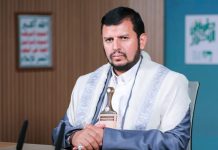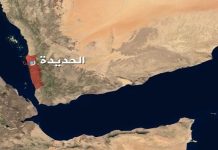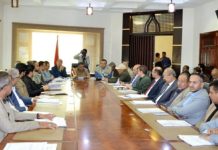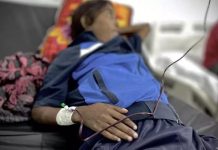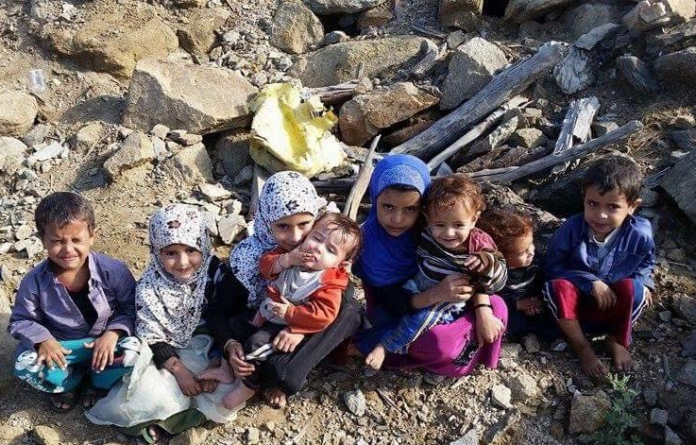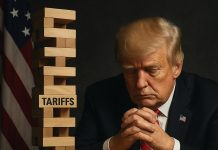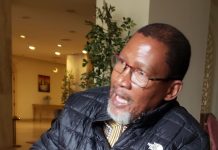Daniel Martin Varisco
As the months drag on after a disastrous war inflicted on Yemen, this country of some 26 million is left to spiral further into a humanitarian disaster that continues to take lives daily. Kuwait is hosting peace talks, coordinated by the U.N. Special Envoy for Yemen, Ismail Ould Cheikh Ahmed. Calling the contentious meetings “peace talks” is a misnomer.
Each party present is there to posture and save face, making demands that the other sides are unlikely to accept. This is not surprising given the requirements of Security Council Resolution 2216 (2015), which was crafted to lay all the blame on the Houthis at the insistence of the Saudis. The Saudi-led coalition still demands that the Houthis give up their weapons. This is Yemen, a country where everyone is armed. Asking a Yemeni to surrender his guns in a state with no security and terrorist attacks is a no-brainer from the start. The resolution fails to note that the Houthis were actually welcomed into Sana’a at the time as an internal revolution to counter the excessive corruption of President Hadi. It was an internal revolution from the start, not a foreign invasion.
To compound the confusion, not all of the warring factions are present at the talks. Ansar Shariah, which still has nominal control of much of the south, the nascent Islamic State fighters, the various militias part of a southern secessionist movement: none of these are talking peace because none of them were invited to the talks. There is no little irony in the fact that the United States is sending special forces to help the Emirates troops fight against Ansar Shariah in Yemen’s south. The Houthis were attempting to rid Yemen of al-Qaida (Ansar Shariah) when they were attacked by the Saudis. Throughout most of the ground war Ansar Shariah was in alliance with the Saudis in its fighting against the Houthi/Saleh alliance and expanded to the point of selling Yemen’s oil reserves to fund themselves.
The immediate goal of the talks is really about a measured cessation of the conflict. Neither side will admit that the war is unwinnable, although the reality on the ground has made that abundantly clear. The current ceasefire, starting on April 11, has seen less fighting overall but violations continue on all sides. Of course violations continue. The war in Yemen has multiple parties and no single individual is in total control, neither ‘Abd al-Malik al-Huthi nor ‘Ali ‘Abdullah Salih can rein in the thousands of individuals on the streets. Trying to stop the violations is like applying band-aids to an open wound. The only viable solution to the conflict in Yemen is for all external forces to leave the picture. The Saudi claim that the Houthis are going to be another Hizbullah is a lame excuse. Apart from rhetorical support from hardliners in Iran, the fighting in Yemen has used locally available weapons and is about local issues. Saudi Arabia has a long history of interfering in Yemen, including an attempt to take over Sana’a by Ibn Sa’ud in 1934. At least the Saudi king and the Yemeni imam at the time agreed to a real peace plan, the Treaty of Taif. These two rival leaders could recognize stalemate when they saw it.
Missing from the piecemeal approach of the talks in Kuwait is the call for an independent monitoring body to investigate the numerous human rights violations on all sides. Neither side is willing to accept blame for the atrocities they have committed but rather, like spoiled children, heap blame on the other. Meanwhile Yemeni citizens are being blown to pieces while the warring sides fail to make compromises. The Kuwaitis are to be praised for hosting the talks, but the nature of U.N. involvement virtually ensures a lack of any real progress. This is clearly a situation in which nations are not united. The United States and Great Britain, for example, are openly and covertly supporting and supplying the Saudi-led coalition, even though this support allowed al-Qaida to expand its control and gain converts to terrorism among Yemen’s youth. When Human Rights Watch and some 22 other NGOs called on the U.N. to establish an independent commission of inquiry on the Yemen abuses back in August, 2015, the U.N. caved in to the Saudi demand that this be a commission established by President Hadi, one of the main culprits in the war.
There is certainly no peace of mind among Yemenis about the current circus of peace talk negotiations. I fervently hope that at some point reason will win out, but that hope has been dashed far too many times to be optimistic. Yet the resilience of the Yemeni people, despite the crushing humanitarian crisis, keeps me from being pessimistic. May hope trump the piecemeal talks.
Daniel Martin Varisco is President of the American Institute for Yemeni Studies, Research Professor at Qatar University and advisor to MENA Tidningen.



